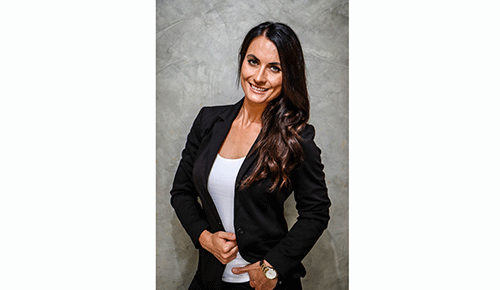Katja Meier
Central Banks use interest rate increases to slow down the increase in inflation.
These past few months have tested the resolve of even the most seasoned of investors.
entral Banks around the world are wielding a big axe in the form of interest rate hikes to cut down the rising inflation.
Closer to home, we have also felt the bite of rate increases as both the South African Reserve Bank (SARB) and the Bank of Namibia (BoN) increased their lending rates, with the outlook of more increases to come.
As is the case with the SARB, which has a target to keep inflation between 4% and 6% through increasing the interest rates, central banks attempt to cool down the economy by limiting the amount of available money that people can spend and instead redirect it to servicing their debt.
There is no doubt that we are currently in an upward interest rate cycle that may continue for some time to come.
This period of uncertainty on how long this cycle will last and to what extent it will increase will also create volatility in the market, as investors will start to get nervous, which may result in talks of the possibility of market corrections and recession.
Given all the external influences and possible outcomes, investors may feel overwhelmed and wonder what the right course of action is to take.
When volatile market conditions present themselves, investors are often tempted to act on their first instinct, which invariably is an emotional one. These decisions are later often regretted, as investors may miss out on other opportunities that arose because of the volatility.
In these uncertain times, we often end up doing the exact opposite of what was called for.
It is, therefore, always important to speak to your financial adviser should you wish to make a change or feel you are unsure of what is happening in the markets.
If one wishes to enter the market or seek to invest hard-earned funds, the challenge investors face is, what are my available options or do I simply put my money under my mattress? The rising interest rate cycle is providing investors with a reprieve of sorts albeit in the short term.
Whilst it is not advisable for a long-term investment strategy to be based solely on investing in cash, rising rates do offer a place to park your funds in the short term whilst you let the market conditions provide a clearer entry point into longer-term investment options, such as equities.
The saying cash is trash may ring true in a high inflationary environment, but in a rising interest cycle, short-term cash provides a temporary haven to allow investors to better plot their course of action as opposed to rushing into making decisions that may end up causing more harm than good.
Short-term fixed interest type funds, such as Money Market, do provide investors with such a reprieve and ability to park funds for the short term.
Best-made plans can be undone through rash decisions or paralysed indecision.
Always consult your financial adviser to assist you in the choices you make or in the discomfort you may feel.
In uncertain times, we sometimes need protection from ourselves, rather than the markets. One part of reaping excellent investment returns is to be ready to act when the situation calls for it.
*Katja Meier is a wealth specialist for Old Mutual Wealth.


